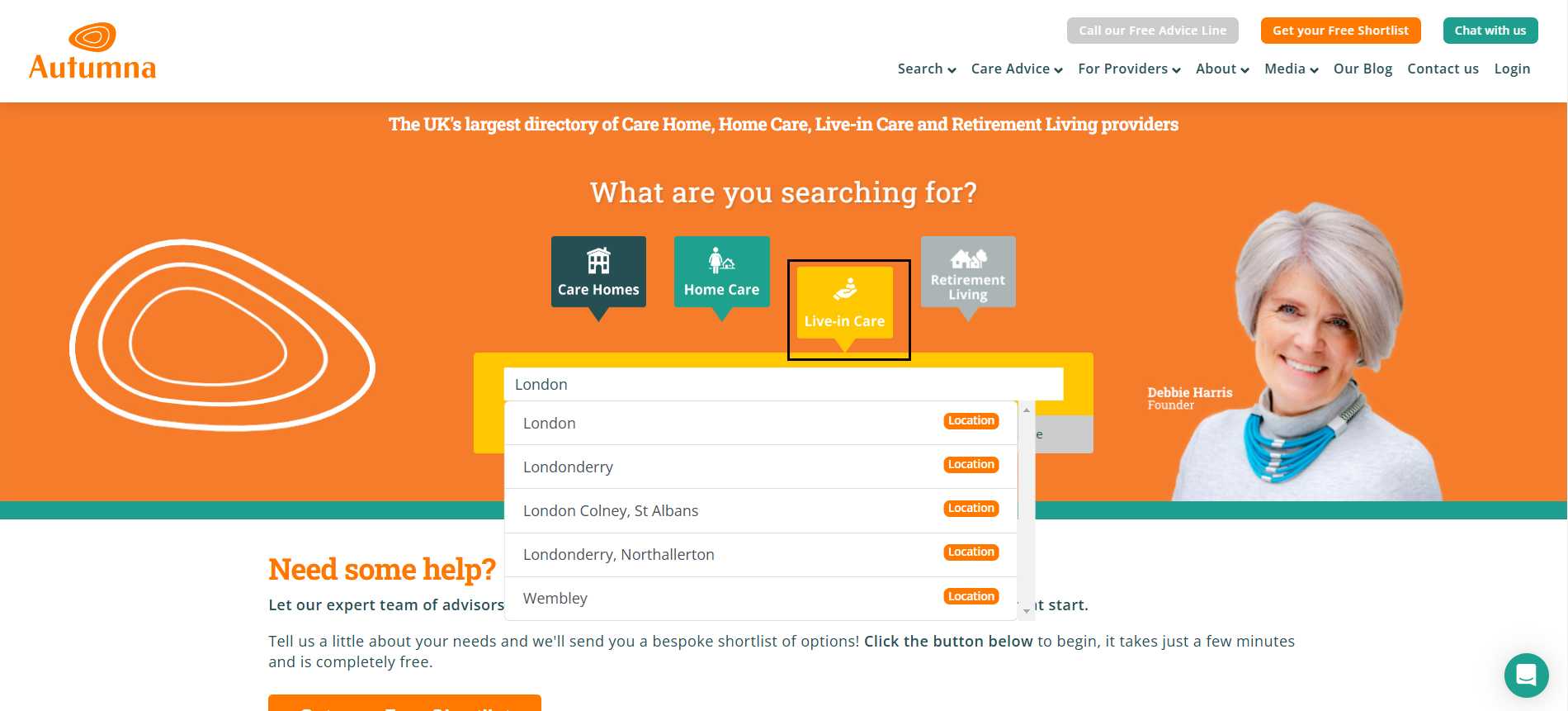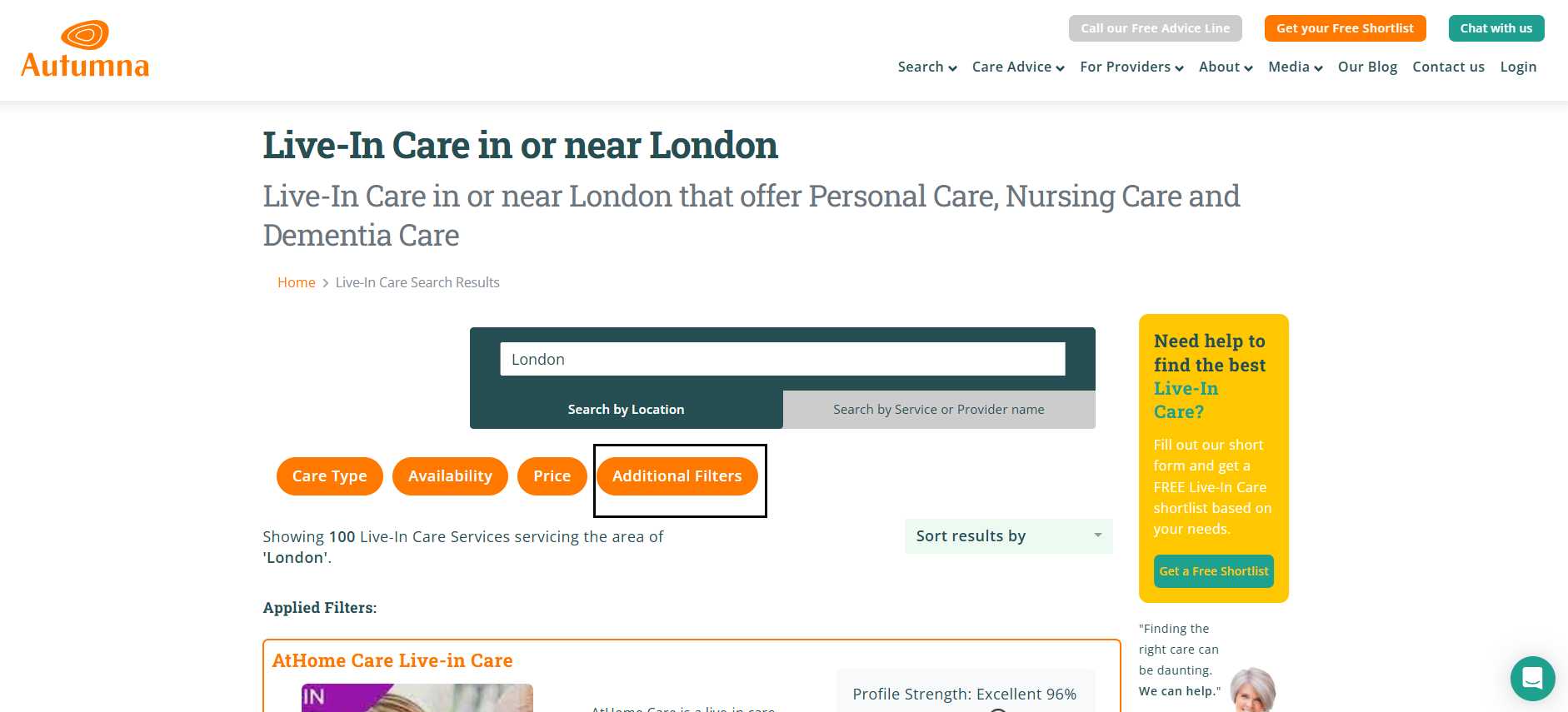Posted by Janine Griffiths
How to Resolve Problems with Live-In Carers

Live-in care offers a compassionate and personalised solution for those who need continuous support in the comfort of their own home.
However, as with any close living arrangement, challenges can arise. Whether it’s a clash of personalities or concerns about the care provided, resolving issues quickly and effectively is crucial to maintaining a positive and supportive environment for everyone involved.
This blog will guide you through common problems with live-in carers and provide you with practical steps to resolve them, ensuring a harmonious and beneficial relationship.
Common problems with live-in carers
Live-in care offers invaluable support, but like any arrangement, it’s not without its challenges. Families might encounter issues such as a lack of clear communication, the emotional strain on carers, or disagreements about care routines. Additionally, adapting to having a stranger in the home can be difficult for both the person receiving care and their family.
Recognising these challenges is the first step towards addressing them effectively, ensuring both the carer and the individual receiving care can enjoy a positive, supportive relationship. This section explores some of the most common problems with live-in carers and how to identify them early.
Communication issues: Misunderstandings often stem from unclear instructions or assumptions. For instance, a carer may not realise how you like certain tasks to be done if expectations haven’t been clearly set.
Cultural differences: Some live in carers come from diverse backgrounds and occasionally, cultural habits, language barriers, or differing routines can sometimes lead to friction. For instance, a carer may not be familiar with certain traditions or preferences that are important to the individual receiving care. Taking the time to discuss cultural expectations and preferences can help create a harmonious relationship and ensure both parties feel valued.
Lifestyle conflicts: Sharing a home means sharing space, which can lead to feelings of intrusion or loss of privacy for the individual receiving care. For the person receiving care, it may feel uncomfortable to have someone in their home around the clock. Similarly, the carer may also need their own space to relax and recharge. This is why it is important to have open discussions about boundaries and personal space to ensure that both the person receiving care and the carer can live together comfortably.
Care quality concerns: If the carer’s performance doesn’t meet expectations—whether due to a lack of attention, skill mismatches, or unmet needs—it can understandably cause frustration. It’s essential to regularly assess the care provided, check in with both the carer and the person receiving care, and address any concerns promptly.
Emotional strain: Building trust takes time. A carer and their client may struggle to connect, leading to feelings of discomfort or mistrust. The person receiving care may feel vulnerable or resistant to help from someone they don’t yet know, while the carer may struggle to understand the unique emotional needs of the person they are supporting. It’s important to allow time for the relationship to develop and encourage open communication about feelings and concerns.
Steps to address problems with live-in carers
Encountering problems with a live-in carer can be challenging, but most issues can be resolved with the right approach. Whether it's a communication breakdown, differences in expectations, or concerns about care quality, addressing problems early is essential for ensuring that you or your loved one gets the care that is needed.
Below, we have outlined some practical tips to help you effectively tackle common challenges, ensuring that both the carer and the person receiving care feel valued and supported:
Open and honest communication
Most issues can be resolved through clear, respectful conversations. Start by setting aside time to discuss concerns in a calm, non-confrontational manner.
Use “I” statements, such as “I feel concerned about…” instead of placing blame. You should also listen actively to the carer’s perspective as well.
Clarify expectations
Often, problems arise from a lack of clarity. Ensure the care plan outlines the carer’s duties in detail, including daily tasks, meal preferences, and medical requirements.
If necessary, update the plan to reflect changing needs.
Seek mediation or third-party assistance
When direct communication doesn’t resolve the problem, involve a neutral third party. Many care agencies have procedures for mediating disputes between carers and clients. A professional mediator can help both parties express their concerns and find common ground.
Provide feedback and training opportunities
If care quality is a concern, offering constructive feedback can often improve the situation. Focus on specific examples rather than general criticism. Suggest additional training or resources to help the carer meet your expectations.
Address cultural sensitivity
Cultural differences can be managed through empathy and understanding. Learn about the carer’s background and share your own customs to create a mutual understanding. Be flexible and willing to adapt routines where possible.
When problems persist
Despite best efforts, there are situations where the arrangement may not work out. Knowing when to request a change is important for your own peace of mind.
For example, if communication has broken down entirely, or your carer is unable to provide care for you or a loved one despite support or feedback, then it is worth requesting either a different carer or make an official complaint to the live in care agency that the carer belongs to.
Similarly, you should also take action if your carer is acting unprofessionally, behaving inappropriately, or the relationship is causing emotional distress or discomfort.
When requesting a new carer, you can ensure that everything goes smoothly by informing the live in care agency as quickly as possible. They may potentially be able to facilitate a handover period to help your new carer obtain all of the details they need to meet your requirements.
But how do you reduce the chances of experiencing problems with carers in the first place? We discuss this in the section below.
Preventing issues with live-in carers
Preventing issues with live-in carers starts with a proactive approach to setting expectations and forging a strong working relationship. Begin by selecting a carer through a reputable agency that carefully matches candidates to your specific needs and preferences.
One way that you can find reputable live-in carers is by visiting the Autumna directory and select ‘live in care’.

You will then be presented with a list of reputable live-in carers in your selected area. Our platform also offers ‘Additional Filters’ to help you refine your search based on specific needs.

It is also a good idea to create a detailed care agreement which outlines duties, schedules, boundaries and deadlines to avoid misunderstandings.
Furthermore, regular check-ins with the carer will make communication easier and give you an opportunity to address any concerns before they escalate. You can also prevent potential problems from arising by maintaining flexibility and encouraging mutual respect to help build a positive and lasting partnership.
Ideally, you should conduct periodic reviews with the carer and family members to make sure you are a good match for each other and address concerns early.
How to find live-in carers
Problems with live-in carers are not uncommon, but they are usually resolvable with open communication and the right support. Tackling issues early helps create a positive and respectful relationship between the carer and the individual in need of care, whether it’s yourself or a loved one.
If you’re facing challenges with live-in care or need further guidance, Autumna’s resources and knowledgeable team are here to help. You can find more suitable live-in carers by visiting our directory.
You can also fill out a short online form to receive a list of live-in carers that are tailored to your unique circumstances and requirements. Alternatively, call us on 01892 335 330 or visit our directory for more information.
Receive a Free Live-In Care Shortlist!
Let our expert team of advisers get your search off to a great start.
Tell us a little about your needs and we'll send you a bespoke shortlist of live-in care providers! Click the button below to begin, it takes just a few minutes.
Other articles to read
From the blog

Older Persons Care Advice
Ultimate guide to care homes in Norwich
April 23rd, 2025
Discover the best care homes in Norwich—explore lifestyle-focused options, top-rated services, and how to choose the right home with confidence.

Older Persons Care Advice
How to find an adult day care centre near you
April 22nd, 2025
Looking for an adult day care centre near you? Discover how to find safe, joyful care for your loved one—and support for yourself—on Autumna.

Older Persons Care Advice
How to shortlist care homes in Exeter
April 17th, 2025
Need help shortlisting care homes in Exeter? Learn how to filter options with confidence, compare homes, and find the best fit with Autumna’s free tools.
Frequently Asked Questions
Common issues include communication breakdowns, cultural differences, and care quality concerns. Open communication, clear expectations, and mediation can help resolve these challenges effectively.
If you feel distressed or uncomfortable, address your concerns directly with the carer or the live in care agency concerned. If unresolved, request a new carer for a better fit.
Prevent issues by setting clear expectations, creating a detailed care agreement, and maintaining regular check-ins to ensure that the carer is living up to your expectations.






